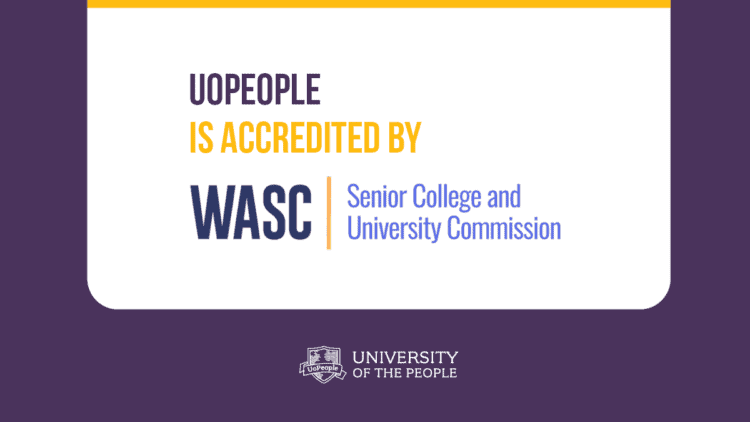March 18, 2025
Academic Accreditation for Online University Education: The Importance of WASC and Its Global Impact


Online higher education is witnessing increasing interest, prompting many universities to seek international accreditation, particularly from the US Department of Education. WASC accreditation is one of the most prominent bodies granting academic recognition to educational institutions both within the United States and abroad. This accreditation constitutes a key standard for academic and administrative educational quality, making it a goal many universities seek to enhance their international standing.
To achieve WASC accreditation, educational institutions must meet a set of rigorous and sophisticated standards that ensure academic quality and adherence to administrative controls and standards. Once these requirements are met, the university receives a certificate of accreditation that reflects its commitment to excellence in teaching and learning and the achievement of outstanding academic results. This accreditation represents an important guarantee for students, their parents, employers, and companies, as it confirms that the institution enjoys credibility and international recognition.

In recent years, several prestigious universities have obtained this accreditation, including the University of Berkley, Stanford University, and the University of California, Los Angeles. Recently, the University of the People (UoPeople) received WASC accreditation, reflecting the growing interest in online university education, which has seen significant expansion following the COVID-19 pandemic, becoming a fundamental pillar of the modern higher education system.
The Importance of WASC Accreditation and Its Impact on Universities and Students
WASC accreditation provides educational institutions with a competitive advantage, granting them international recognition that enhances their academic standing worldwide and increases the opportunities for graduates to pursue higher education or integrate into the global job market. This accreditation also imposes a commitment to continuous improvement in the quality of education, as accredited universities are subject to periodic evaluations to ensure sustained academic excellence.
In this context, Dr. Lisa Anderson, President Emeritus of the American University in Cairo, emphasized the importance of this international accreditation, saying, “WASC represents a testament to the quality, integrity, and development of academic programs. It enhances the credibility of the educational institution and supports the ability of its graduates to compete in the job market.”
Stages of Accreditation and the Challenges of E-Learning
The WASC accreditation process involves a rigorous process that includes self-assessment, peer review, site visits, and continuous improvement plans. After accreditation is granted, institutions undergo periodic evaluations every five to ten years to ensure their continued adherence to required academic standards. This professional process contributes to enhancing the credibility of academic credentials issued by universities, making it easier for students to transfer between educational institutions or pursue graduate studies.
Despite these advantages, e-learning still faces challenges, most notably the lack of recognition by some companies, particularly in the Arab world, of the credibility of this educational model. This is where WASC accreditation comes into play, as it provides accredited university degrees with greater credibility, which contributes to improving graduates’ employment opportunities and enhancing the compatibility of their programs with the requirements of the global labor market.
In this regard, Dr. Mary Sini, Dean of the University of the People, said, “Years of work to establish online education in the Arab world has finally borne fruit. This recognition strengthens our confidence that we are moving in the right direction, by employing modern technology while maintaining the quality of education in accordance with American and international standards. This accreditation is a recognition of the efforts of our faculty and staff who are dedicated to providing a distinguished educational experience.” It is worth noting that the University of the People has approximately 120,000 students, making this accreditation a pivotal step in strengthening students’ confidence in their educational institution.
Future prospects for online education and additional accreditations
In addition to WASC, universities are also seeking other accreditations, such as those from the Distance Education Accrediting Commission (DEAC), a US national body specializing in evaluating institutions that offer online education. Although less well-known than WASC, this accreditation represents another step in the development of distance education, which has become the future of higher education.
With the continuous development of digital education tools and methods, it has become imperative to monitor academic quality and ensure compliance with global standards to ensure a more sustainable and reliable future for this growing educational model. Hence, the importance of communication between educational institutions, government ministries, and the private sector to build bridges of cooperation, fostering a new generation equipped with advanced educational tools to navigate the job market in a manner that meets the needs of the times.
(The original version of this article has been translated into English)
